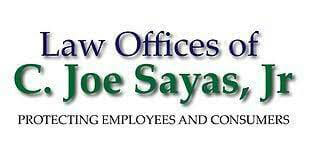Know California’s family leave rights for both parents

Q: My spouse and I are expecting a baby and we are trying to figure out how much family leave we are entitled to so we can each spend quality time with our new baby. My spouse works at a small office and I work at a medium sized company in Los Angeles. What are our rights?
A: Under the California Family Rights Act (CFRA), employers with five or more workers are required to offer 12 weeks of unpaid protected leave during any 12-month period to bond with their new child, or to care for themselves, their child, parent, spouse, or domestic partner, and their grandparent, grandchild, and sibling. No matter how small the company is, if it employs at least 5 persons, an employer may not refuse to grant the request for leave.
To qualify for leave, employees must have had at least 1,250 hours of service with the employer during the previous 12-month period. (Under the federal Family Medical Leave Act [FMLA], an employer may refuse to grant leave to a salaried employee who is among the highest paid 10% of the employer’s employees; or, if they were granted leave, the employer may refuse to reinstate them to their previous position.)
The employer may require (or the employee can decide) to use paid leave, such as vacation or Paid Time Off, if the employee is not receiving other forms of leave payments. Paid sick leave must be used only for the employee’s serious health condition, or where the employer and employee agree to its use.
For pregnant employees, an employer is required to allow those disabled by pregnancy, childbirth, or a related medical condition to take a leave of absence for a reasonable time of up to 4 months before returning to work. The employer is required to maintain and pay for coverage under a group health plan for an employee who takes such a leave.
CFRA requires that an employer who employs both parents of a child must grant unpaid protected leave to each employee. This means that if both parents work for the same employer, the employer must provide 12 weeks of leave to each of the parents. The employer may, but is not required to, grant simultaneous leave to both of these employees.
Under protected leave, the employer must return the employee to their previous position once they come back from leave. If an employee is denied the leave, fired, or otherwise treated worse because they requested or took protected leave, they should consult with an experienced employment attorney to protect their rights.
Denying lawful leave to an employee may be considered discrimination or retaliation, which may entitle the employee to recover the following remedies: back pay, hiring, promotion, reinstatement, front pay, compensatory damages, including emotional pain and suffering, and in more serious violations, punitive damages. Aggrieved employees may also recover attorneys’ fees, expert witness fees, and court costs.
The Law Offices of C. Joe Sayas, Jr. welcomes inquiries about this topic. All inquiries are confidential and at no-cost. You can contact the office at (818) 291-0088 or visit www.joesayaslaw.com. [For more than 25 years, C. Joe Sayas, Jr., Esq. successfully recovered wages and other monetary damages for thousands of employees and consumers. He was named Top Labor & Employment Attorney in California by the Daily Journal, consistently selected as Super Lawyer by the Los Angeles Magazine, and is a past Presidential Awardee for Outstanding Filipino Overseas.]

